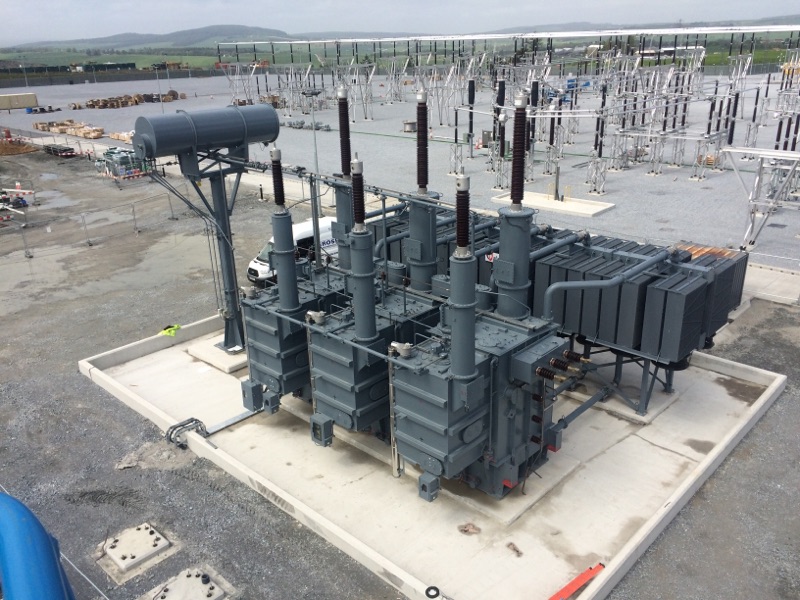Proper transformer installation and commissioning is vital for ensuring the reliability and efficiency of electrical systems. At Manikaran, we excel in providing comprehensive solutions that go beyond the basics. This article delves into advanced strategies in transformer commissioning, ensuring optimal performance and safety.
The Importance of Transformer Commissioning
Transformer commissioning is a critical process that involves meticulous planning, testing, and validation to ensure transformers operate correctly within their specified parameters. Effective commissioning is essential for preventing failures, enhancing performance, and ensuring the longevity of the transformer.
Advanced Planning and Preparation
A successful commissioning process starts with thorough planning and preparation. This stage is crucial for identifying potential issues and ensuring all necessary resources are in place. Key aspects include:
- Site Assessment: Conducting a detailed site inspection to ensure adequate space, proper ventilation, and addressing any environmental concerns.
- Documentation Verification: Reviewing all relevant documentation, such as manufacturer specifications and installation manuals, to ensure accuracy and completeness.
- Resource Management: Allocating the necessary tools, equipment, and skilled personnel to handle the commissioning process efficiently.
Key Steps in Advanced Transformer Commissioning
1. Comprehensive Inspection and Testing
Before installation, a detailed inspection and testing phase is crucial. This includes:
- Visual Inspection: Examining the transformer for any physical damage or defects that might have occurred during transportation.
- Electrical Testing: Performing a series of electrical tests to verify that all parameters meet the specified limits. This includes insulation resistance testing, turns ratio testing, and power factor testing.
2. Precise Installation
Proper installation is critical for the successful operation of the transformer. Key elements include:
- Accurate Positioning: Ensuring the transformer is positioned correctly to avoid mechanical stress on the connections.
- Secure Connections: Making sure all electrical connections are secure and comply with required standards, including grounding and connecting the primary and secondary windings.
- Efficient Cooling System Setup: Installing and verifying the cooling system to prevent overheating during operation.
Detailed and Rigorous Testing Procedures
Testing is a cornerstone of the commissioning process, ensuring the transformer performs as expected under various conditions. Essential tests include:
- Insulation Resistance Testing: Assessing the integrity of insulation materials to prevent electrical failures.
- Turns Ratio Testing: Verifying that the transformer’s windings are proportioned correctly to step up or step down voltages as needed.
- Oil Quality Testing: For oil-filled transformers, checking the oil for moisture content and dielectric strength is vital.
- Load Testing: Simulating real-world conditions by applying load to the transformer, ensuring it operates correctly under expected service conditions.
Addressing and Overcoming Common Challenges
Several challenges may arise during the commissioning process. Addressing these proactively ensures smooth operation:
- Temperature Control: Managing the heat generated by transformers is crucial for long-term reliability. Effective cooling systems are essential.
- Environmental Protection: Protecting the transformer from dust, moisture, and other environmental factors can prevent performance issues. Proper sealing and maintenance are key.
- Load Management: Ensuring the transformer is rated correctly for the expected load variations is critical for efficient operation.
Leveraging Modern Technologies
Modern technology offers advanced techniques that significantly enhance the commissioning process. Some of these include:
- Online Monitoring Systems: These systems provide real-time data and alerts on the transformer’s performance, enabling continuous monitoring and quick response to anomalies.
- Predictive Maintenance: Utilizing data analytics and machine learning to predict potential failures before they occur, allowing for proactive maintenance and reducing downtime.
- Advanced Diagnostic Equipment: Modern testing equipment offers more precise and comprehensive data, aiding in better decision-making during the commissioning process.
Expertise in Residential Electrical Panel Installation
In addition to transformer commissioning, Manikaran also specializes in residential electrical panel installation. This service ensures that residential electrical systems are safe, reliable, and capable of handling modern demands. Our comprehensive approach includes:
- Needs Assessment and Planning: Evaluating the electrical requirements of the residence and planning the installation accordingly.
- Professional Installation: Ensuring all components are installed correctly and meet safety standards.
- Thorough Testing and Verification: Conducting comprehensive tests to ensure the electrical panel operates efficiently and safely.
Ensuring Safety and Compliance
Safety and adherence to industry standards are paramount in both transformer installation and commissioning and residential electrical panel installation. Ensuring all procedures comply with regulatory requirements minimizes risks and ensures the longevity and reliability of electrical systems.
Conclusion
Mastering transformer installation and commissioning requires a blend of meticulous planning, detailed execution, and the integration of advanced technologies. By following a structured approach and leveraging modern techniques, Manikaran ensures flawless transformer commissioning. Whether it’s for large-scale industrial transformers or smaller units for residential electrical panel installation, the principles of thorough preparation, detailed testing, and proactive maintenance are essential. Trust Manikaran’s expertise to deliver exceptional performance and safety for your electrical systems.

